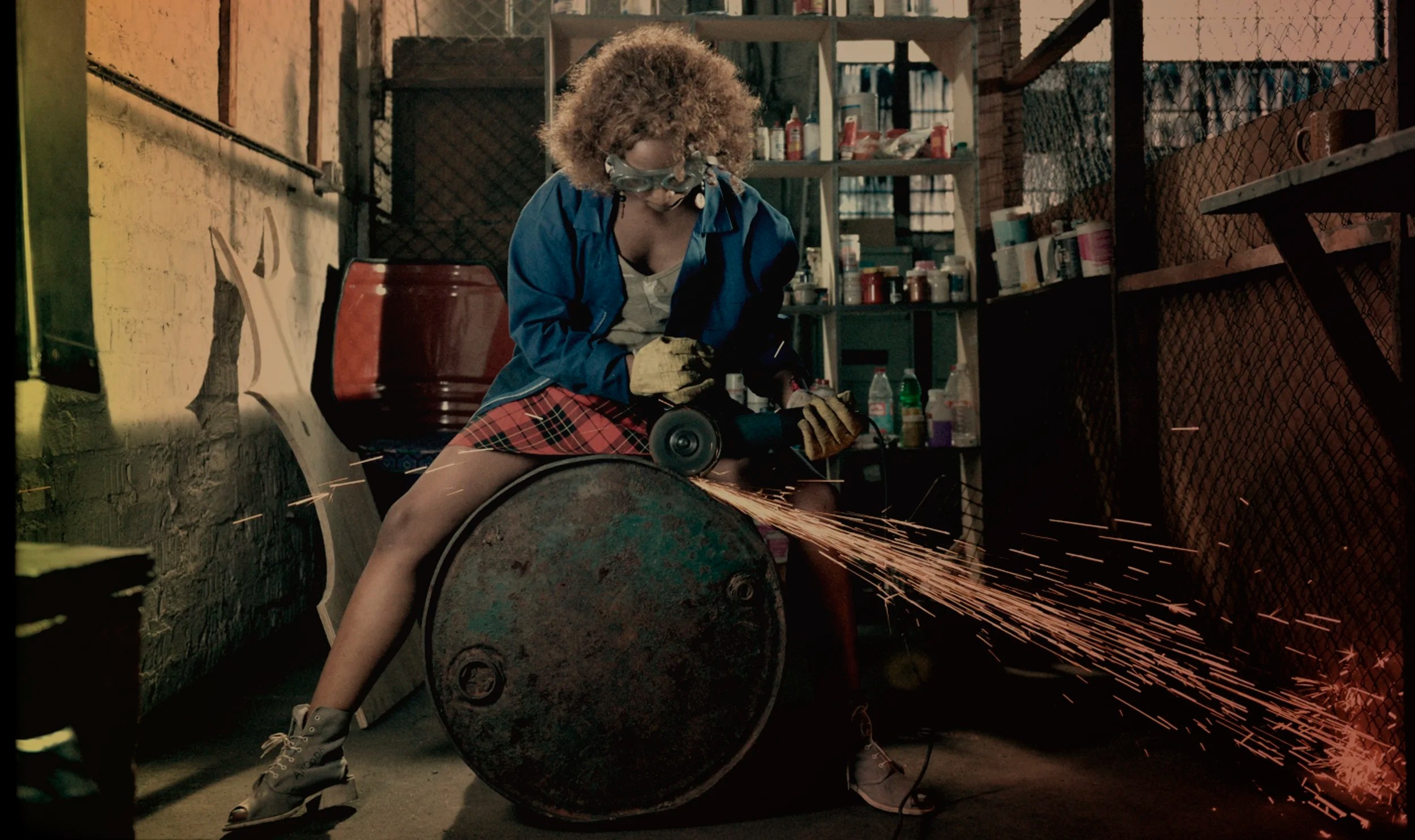Ayanda has all of the trappings of a standard indie film – a character study of a quirky protagonist, alternative rock/folk music, and a mix of comedy and drama. What sets this movie apart, however, is that quirky protagonist is a young South African woman.
Fulu Moguvhani portrays Ayanda, a 21-year-old determined to save her late father’s car repair garage from being sold. Using her talent for reinventing used materials into furniture, she decides to completely transform old cars into stylish modern machines and sell them for a profit. Amid family drama, romance, and coping with memories of her father, Ayanda matures in this refreshing take on the coming-of-age narrative.

Director Sara Blecher, a native of Johannesburg, presents an Africa not often portrayed on Western screens. Yeoville, the Johannesburg suburb where the film is set, is a diverse community of South Africans and immigrants from West African countries such as Nigeria and Gambia. Through the use of a clever, yet remarkably understated device, the film is framed through the lens of a young filmmaker who is photographing Ayanda and other local residents in order to document a “continent reinventing itself.”
The photos are intermittently dispersed throughout the film’s action and provide a creative and memorable means to introduce new characters. As David (O.C. Ukeje), one of the mechanics working with Ayanda, inspects a car he is considering purchasing, we meet the owners – two young women – through photos and 16 mm film. After discussing the merits of having a Nigerian sugar daddy, we see their laughter turn to anger after David, who is Nigerian, announces he will not buy their car. This device places the filmmaker, who is nameless, as a stand-in for the director, making Blecher’s goal of highlighting the normalcy and diversity throughout the continent clear, without being heavy-handed.
This subtly also carries over into the film’s plot and performances, which flow from comedy to drama seamlessly. At a family lunch, we are introduced to Ayanda’s many relatives and the requisite family drama. As one uncle criticizes his niece and nephew for their lack of education, his brother teases him for posturing via quotes from Nelson Mandela. Funny banter and oft-repeated stories abound, with the characters switching fluidly from their native tongue to English.

These authentic relationships are thanks in large part to the strong performances from the cast. Fulu Moguvhani, as the titular character, shines in both serious and comedic scenes, with her palpable excitement and eagerness. During a love scene with David, she quickly snatches off her wig before taking things further. Her strained relationship with her mother, Dorothy, who seems intent on burying memories of her husband and their unfulfilled dreams, produces a number of the film’s most touching scenes. Nthati Moshesh gives a standout performance, perfectly embodying a woman who is torn between grief, guilt, and the pain of betrayal.
The supporting cast is just as strong, from Kenneth Nkosi as Uncle Zama, the long-time family friend who may not have their best interests at heart, to O.C. Ukeje as David, Ayanda’s loyal co-worker and old flame who is the voice of reason.
Despite suffering from structural issues – namely multiple climaxes, time jumps, and a lengthy run time – Ayanda is an enjoyable film. Much like its protagonist, the movie blends diverse elements to craft a globally resonant story from the refreshing, relatable perspective of a young African woman.
Author’s Note: Ayanda is being distributed via ARRAY, Ava DuVernay’s distribution company, which seeks to connect audiences to independent films by women and people of color. Head over to their website to see when the film will be coming to a theater near you!
